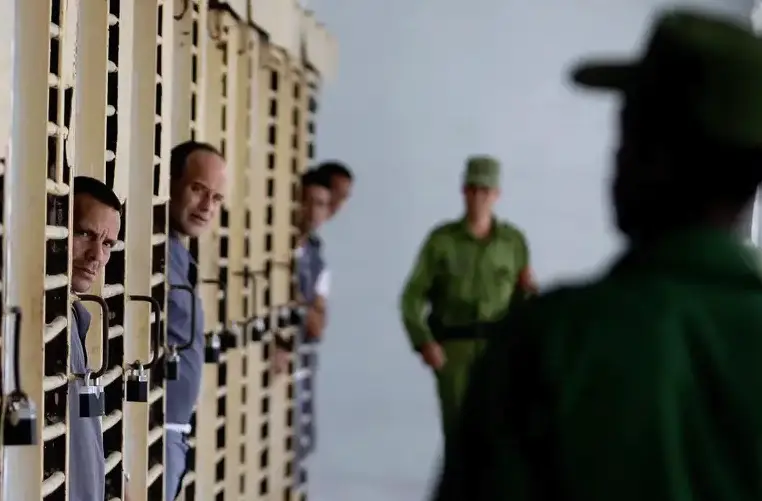In its final days, the Biden administration, through a behind-closed-doors agreement with Cuba brokered by the Vatican, revived several controversial Obama-era concessions. On January 14, 2025, Cuba agreed to release 553 prisoners on parole. In exchange, the U.S. removed Cuba from the State Sponsors of Terrorism list, suspended Title III of the Helms-Burton Act, and eased restrictions on military-linked Cuban entities.
The following day, at his Senate confirmation hearing on January 15, then Secretary of State nominee Marco Rubio emphatically reaffirmed the Cuban regime’s status as a state sponsor of terrorism, citing irrefutable evidence. Just days later, on January 20, President Donald Trump reinstated this designation in his first executive order, nullifying several Biden administration policies. This reclassification dismantled Cuba’s leverage from prisoner releases, exposing its decades-long support for terrorism, which poses significant threats to U.S. national security. It also reimposed sanctions on military-run entities, cutting off resources used to suppress dissent and export authoritarianism.
History demonstrates that Cuba’s regime consistently exploits its people as bargaining chips, evident in events such as the 1994 Balseros Crisis, the exile of Black Spring prisoners, and the 2014 exchange of a jailed American contractor for spies to ease sanctions. Similarly, the Cuban government portrays its recent prisoner releases as a humanitarian gesture to the Vatican, but the timing—both announcements made on the same day by Cuba and the U.S.—raises significant doubts about this claim.
While the reunion of Cuban political prisoners with their families is welcome, these are conditional excarcerations, not true releases. Leaders like José Daniel Ferrer face the threat of reimprisonment if they violate vague provisions of “socialist legality,” which are designed to criminalize dissent. Other prisoners, such as Donaida Pérez Paseiro, report facing similar threats. In a system devoid of judicial independence, where political prisoners who are victims of torture have no recourse to justice against their perpetrators, claims of humanitarian intent ring hollow. This façade of progress belies a grim reality: Cuba’s “revolving door of repression” continues unabated. While 166 political prisoners have been excarcerated, 1,161 remain imprisoned, and hundreds more are likely to be detained for dissent in the coming months.
If upheld, President Biden’s executive order removing Cuba from the list of state sponsors of terrorism would have weakened U.S. international standing and undermined efforts to enhance national security and prosperity. Exchanging prisoners for concessions contradicts U.S. commitments, such as the Declaration Against Arbitrary Detention, which opposes leveraging human lives for political gain. These negotiations, reversed by the Trump administration, would have set a dangerous precedent, emboldening autocrats worldwide to exploit prisoners as bargaining chips, threatening international law, security and human rights.
Historical evidence strongly supports Cuba’s designation as a state sponsor of terrorism. For over six decades, it has backed armed groups and international terrorists, including providing safe haven to National Liberation Army (ELN) leaders, a narco-terrorist organization involved in drug trafficking. Illegal mining, and extortion. This aligns with its strategy, thinly disguised as peace facilitation in recent decades.
In 2019, after the ELN bombed a Bogotá police academy, killing 22 cadets, Cuba refused Colombia’s request to extradite ELN negotiators, citing diplomatic protocols while continuing to shelter them. Though less overt than its ties with Venezuela, Cuba’s long-standing relationship with the ELN suggests its leaders may still coordinate activities from Cuban territory. Given the ELN’s role as a paramilitary force for the Maduro regime, financed by drug trafficking, Cuba’s involvement in this arrangement is far from neutral or peaceful.
The humanitarian case for removing Cuba from the terrorism list overlooks the severe human cost of the groups it supports. The ELN, with 6,000 members, funds Venezuela’s military through drug trafficking while committing atrocities. Since mid-January 2025, the ELN launched an offensive against FARC dissidents in Catatumbo, a key cocaine hub near the Venezuelan border, which has resulted in over 90 Colombian officers and 80 civilians killed and tens of thousands displaced.
President Gustavo Petro, who once advocated for removing Cuba from the terrorism list and lifted arrest warrants for ELN leaders, now accuses the group of committing war crimes. Aligning with the president, the Colombian Attorney General’s Office announced on January 22 that it had reactivated international arrest warrants for 31 ELN leaders, including some who had been sheltered in Cuba at various times, further strengthening the justification for re-designating Cuba as a state sponsor of terrorism.
Cuba also provides refuge to U.S. fugitives, including Assata Shakur and William Morales, both linked to terrorism, and maintains close ties with Iran, exchanging intelligence for financial benefits. Additionally, the regime strengthens global terrorist networks such as Hezbollah and Hamas through diplomatic and logistical support.
The Cuban regime’s critical role in bolstering Venezuela’s Maduro regime further highlights its destabilizing influence. Accused of crimes against humanity and selling passports to Hezbollah operatives, the Maduro regime has been propped up by Cuba’s restructuring of its military and counterintelligence apparatus, as detailed in a 2022 UN Fact-Finding Mission. By exporting its totalitarian control model, Cuba has helped Maduro maintain power through repression, solidifying its status as a sponsor of terrorism.
The Trump administration’s reinstatement of sanctions on entities controlled by GAESA, Cuba’s military conglomerate, reintroduced a maximum-pressure policy, rejecting engagement strategies that bolstered autocracies. Between 2021 and 2023, GAESA diverted 36% of Cuba’s GDP to tourism, neglecting essential services and worsening poverty, which forced nearly 1 million Cubans to flee. Leaked documents revealed that GAVIOTA, a GAESA subsidiary, held $4.3 billion in offshore accounts, likely used to fund lobbying and destabilization efforts, while the regime claimed it needed $339 million annually for food and medicine. Lifting sanctions would have only reinforced authoritarian control and repression.
History shows that concessions to regimes like Cuba reinforce their repressive grip. While maximum pressure may cause them to entrench further, it cuts off resources needed to suppress dissent, export authoritarianism, and support terrorism. To curb their influence, advance freedom, and secure U.S. interests, this policy must continue beyond a single administration, as dictatorships often outlast democratic pressures by waiting for policy shifts.













